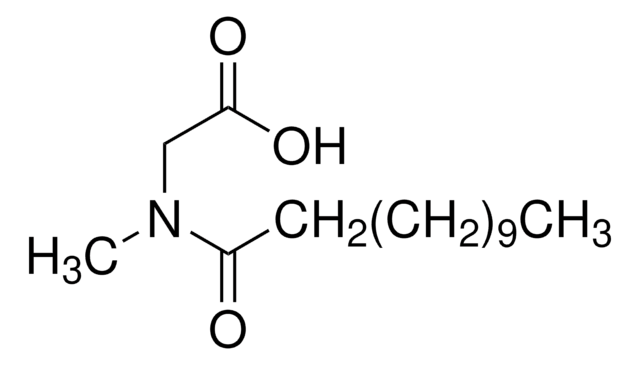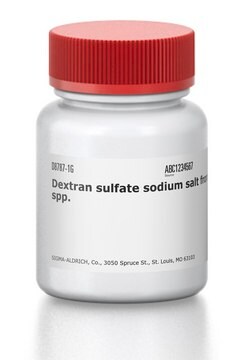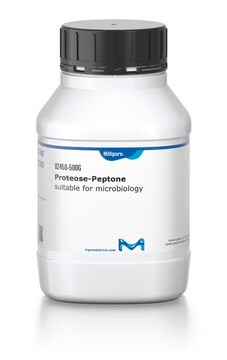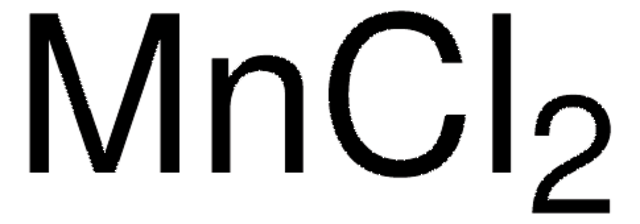L5000
N-Lauroylsarcosine, neat
≥95%
Synonym(s):
N-Dodecanoyl-N-methylglycine, Sarkosyl L
About This Item
Recommended Products
description
anionic
Quality Level
Assay
≥95%
mol wt
average mol wt 600
aggregation number
2
CMC
14.6
SMILES string
CCCCCCCCCCCC(=O)N(C)CC(O)=O
InChI
1S/C15H29NO3/c1-3-4-5-6-7-8-9-10-11-12-14(17)16(2)13-15(18)19/h3-13H2,1-2H3,(H,18,19)
InChI key
BACYUWVYYTXETD-UHFFFAOYSA-N
Looking for similar products? Visit Product Comparison Guide
General description
Physical form
Signal Word
Danger
Hazard Statements
Precautionary Statements
Hazard Classifications
Acute Tox. 2 Inhalation - Eye Dam. 1 - Skin Irrit. 2
Storage Class Code
6.1A - Combustible acute toxic Cat. 1 and 2 / very toxic hazardous materials
WGK
WGK 1
Flash Point(F)
Not applicable
Flash Point(C)
Not applicable
Personal Protective Equipment
Choose from one of the most recent versions:
Already Own This Product?
Find documentation for the products that you have recently purchased in the Document Library.
Customers Also Viewed
Our team of scientists has experience in all areas of research including Life Science, Material Science, Chemical Synthesis, Chromatography, Analytical and many others.
Contact Technical Service










